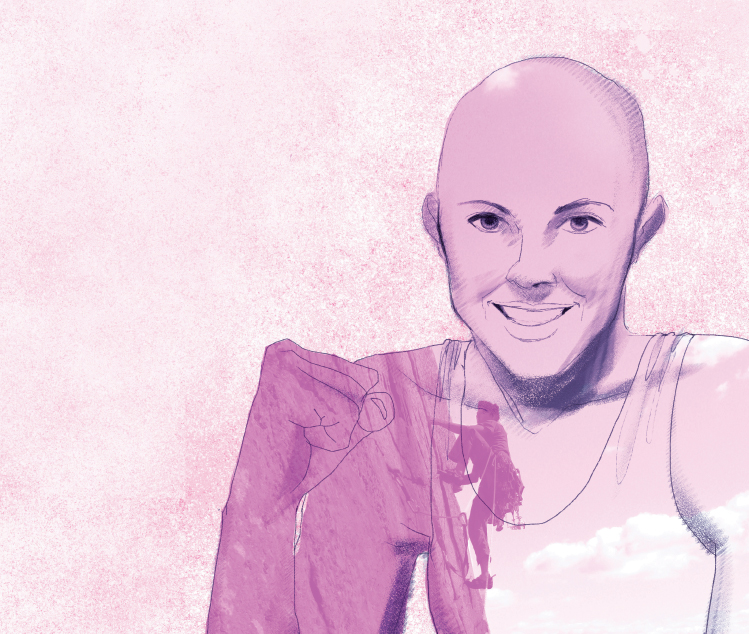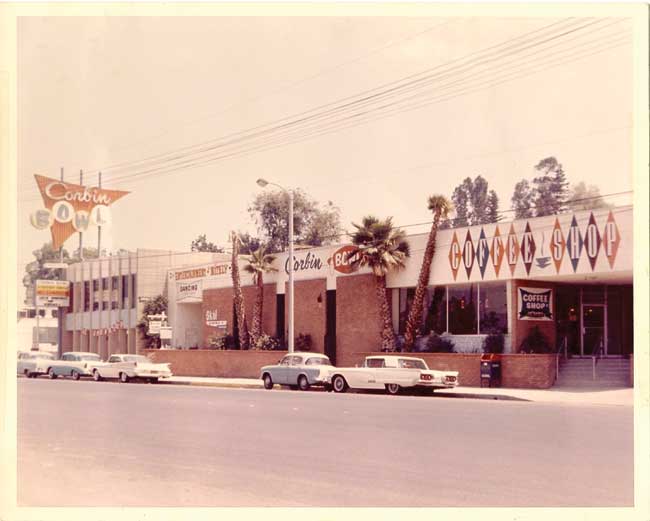
Fighting Back
Instead of living in fear or denial about cancer, try adopting the latest proactive cancer–fighting strategies that can reduce your chances of getting the disease.
-
CategoryHealth
-
Written byNicole Gregory
Valley Glen resident Bruce Walker, 62, regrets not getting tested for prostate cancer more regularly, since his father had the disease, as well as his grandfather. When his own prostate cancer was detected in 2015, Bruce had been skipping regular screenings (a blood test called prostate specific antigen, or PSA). He underwent five weeks of radiation, and today Bruce is in remission. But he says, “I wish I’d been tested more frequently.”
Roger Dolan, 59, of Encino, also opted not to have a screening. For him it was a colonoscopy. “I didn’t want to think about cancer,” he says. When he began having symptoms in 2014, he finally saw a doctor and learned that he had colon cancer, which had spread to his liver. Looking back on the stress and bad eating habits in his life, as well as his lack of awareness about the importance of screening, Roger thinks he might have had a better prognosis if he’d done things differently.
Regular screenings are just one of the many preventative actions we can take to detect cancer early enough to be treated effectively. Here are some current guidelines and resources that cancer experts recommend.
Know your family history
“Talk to elders and get death certificates in order to construct a medical family tree,” says Ora Karp Gordon, MD, of Providence St. Joseph Hospital in Burbank, who specializes in genetics and breast cancer. “This is important in managing your own optimal wellness and prevention.”
Which cancers have been linked to genes? “Breast, ovarian, colon, uterine and pancreatic cancers are the big players,” says Dr. Gordon.
Her advice is to look for the following factors: “Age of onset breast cancer being under 50, having family members who have bilateral cancers—in both breasts or both kidneys—and family members who’ve had more than one kind of cancer.”
If you think cancer might run in your family, talk to your doctor about genetic testing, a technology that is able to identify an ever-growing number of cancer-related genes.
Genetic testing and counseling are offered locally at the Disney Cancer Family Center at Providence St. Joseph Medical Center, as well as the City of Hope Division of Clinical Cancer Genetics. This can be a lifesaver. If you know that you carry the gene for a certain kind of cancer, you and your doctor can look at your overall risk and take steps to prevent it, including surgery.
Angelina Jolie brought worldwide attention to this when she underwent a double mastectomy after learning that she carries the BRCA1 gene, which means she has a genetic predisposition to getting breast cancer or ovarian cancer—or both.
But surgery is just one option. Dr. Gordon says taking birth control pills has some protective defense against ovarian cancer. And a recent study reported in JAMA Oncology found that long-term aspirin use is associated with a modest but significantly reduced risk for overall cancer, especially gastrointestinal tract tumors.Talk to your physician before taking either of these steps.
Be your own advocate
Becoming your own health advocate, especially if you have increased risk of getting cancer, can go a long way in terms of prevention.
Sally Burns, 66, has lived in North Hollywood for 15 years but grew up spending summers at the beach in Nantucket before sunscreen was used. Of Irish descent—with blond hair and blue eyes—she got plenty of sunburns as a girl. As an adult, she has had two skin cancers removed—one was basal cell carcinoma, the other squamous. And two of her sisters have also had skin cancers.
“I’m a fanatic—I use sunblock religiously, I wear a hat and cover myself up whether I’m in the sun or sitting in the shade,” says Sally. “I also wear sunglasses because my mother had melanoma in the retina of one eye.” She visits her dermatologist three to four times a year for a full-body check. “I have to be my own advocate,” she says.
Risk factors for skin cancer include having light skin and blue eyes and having repeated sunburns in younger years, according to the Centers for Disease Control—which is exactly why Burns gets herself checked regularly.
Lung cancer can also develop from past behavior, namely smoking. The risk of getting lung cancer for former smokers remains long after they’ve given up cigarettes.
“Lung cancer is by far the most common cancer killer among men and women, for all major ethnicities,” says Dan Raz, MD, co-director of the City of Hope Lung Cancer and Thoracic Oncology Center. “Of people who get lung cancer, most are former smokers.”
Again, a regular screening is critical. “There’s not a lot of awareness about lung cancer screening,” says Dr. Raz. “But it is potentially life- saving.” When smokers or former smokers get yearly low-dose CT scans, lung cancer can be caught in its early stages and treated.
Learn about screening schedules
Know how often you should be screened for various cancers, based on your age, health
history and family patterns. The American Cancer Society provides a list of recommended schedules for screening many forms of cancer on its website, cancer.org.
Most women know the screening guidelines for mammograms and pap smears, and adults 50 and older know they need a colonoscopy every 5 or 10 years. But schedules can change based on new research. They also increase in frequency for people who have a high risk of getting cancer.
“If a woman is at high risk for breast cancer, or clinical models that predict your lifetime risk as being more than 20%, then an MRI is medically indicated,” says Dr. Gordon. And if this is the case, insurance will pay for the MRI screening, which can detect smaller lesions than mammography can, she says, adding that women who are identified as high-risk should get an MRI and a mammogram every year.
Why wouldn’t all women want to get an MRI? “MRI is expensive and has a higher risk of false positives,” explains Dr. Gordon. “This triggers unnecessary biopsies. It also takes about 45 minutes and involves inserting an IV, and going into the closed MRI device, which makes some people claustrophobic.”
For some cancers there is no screening schedule. Bladder cancer, for instance, does not have a genetic component but is more related to environmental factors, such as exposure to carcinogens, or lifestyle habits like smoking, says Dr. Gordon. Unless a person is at very high risk for this disease, there is no medical recommendation for bladder cancer screening.
Lung cancer is another matter. Screening for lung cancer is not a common or well-known practice, yet it’s critical to surviving that disease. “If you are over 55 and have smoked at least 30 pack years, you should be screened every year,” Dr. Raz says. He explains that a “pack year” means having smoked a pack of cigarettes a day for one year. “If you meet those criteria, insurance will pay for lung cancer screening,” he says.
Stage I lung cancers can be cured, says Dr.
Raz, which is why screening is so important. To find the nearest lung cancer screening facility, check out the Lung Cancer Alliance website, lungcanceralliance.org.
Furthermore, the low-dose CT scans in lung screenings are fast and painless. “If you compare lung screening to other cancer screening tests such as mammogram, colonoscopy or digital rectal exam for prostate cancer, all of which involve some discomfort, lung cancer screening is easy, and the magnitude with which it saves lives is high,” says Dr. Raz.
Live well
After chemo, radiation and surgery, Roger Dolan’s cancer is now in remission, and he has taken steps to reduce the stress in his life. He changed his living situation, let go of demanding work projects and cleared up personal debt. He hikes regularly and eats a healthy diet.
“I can see how the stress was a big factor in my life, and I think it contributed to my eating patterns,” he says. “I was eating a lot of fast food and wouldn’t take time to prepare meals. I would eat in the car. I ate a lot of red meat, greasy fried foods, and every night I was pounding down cakes, pies or sweet foods.” Today he’s eliminated meat, dairy and fast food from his diet and eats more fruit and vegetables. And Roger goes for regular CT and PET scans.
According to the National Cancer Institute, exercising regularly lowers the risk of getting many cancers, particularly colon and breast cancers. This means moderate-intensity physical activity for at least 30 minutes, five or more days a week, or vigorous-intensity physical activity for 20 minutes on three or more days of the week.
Maintaining a healthy weight can also reduce the risk of many cancers, as well as eating a diet that includes vegetables, fruit, low-fat dairy, fish and whole grains, according to the American Cancer Society.
Educate yourself
Staying informed about the latest cancer research will help you take the appropriate steps in cancer prevention. But make sure you get information from reputable sources—your own physician, and websites such as the National Cancer Institute (cancer.gov) or the American Cancer Society (cancer.org) and websites of medical centers that specialize in cancer like Memorial Sloan Kettering (mskcc.org).
These important steps can give you peace of mind and the assurance that you’re doing all you can to live a long and healthy life. ν
The Building Boom in the Valley for Senior Living Communities Has Escalated
Upscale livin’ for active retirees.











